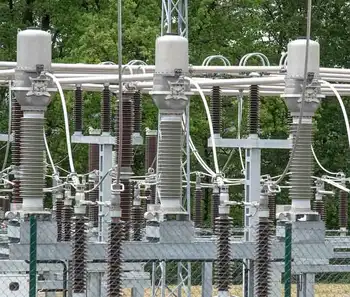Blix chides U.S. for its nuclear aspirations
UNITED NATIONS - Washington is not taking "the common bargain" of the nonproliferation treaty as seriously as it once did, and that's dimming global support for its campaign to shut down North Korea's and Iran's nuclear programs, the United Nations former chief weapons inspector says.
Undersecretary of State John Bolton, by questioning the value of treaties and international law, has also damaged the U.S. position, Hans Blix said.
"There is a feeling the common edifice of the international community is being dismantled," the Swedish arms expert told reporters.
Blix, now chairman of the Swedish government-sponsored Weapons of Mass Destruction Commission, spoke with media in the second week of a month-long conference to review the treaty — signed by nuclear powers and other nations in 1968 — that came into force in 1970. State Department spokesperson Tom Casey disagreed, saying, "both Mr. Bolton... and this administration as a whole, has a very strong track record in terms of... supporting the nonproliferation treaty."
Under the 188-nation pact, nations without nuclear weapons pledge not to pursue them, in exchange for a commitment by the first declared nuclear-armed powers — the U.S., Russia, Britain, France and China — to negotiate toward nuclear disarmament.
The review conference has been stalled by a dispute over agenda language dealing with complaints by some that the Big Five are moving too slowly on disarmament.
Egypt recently scuttled an apparent agreement on the agenda. It wants language that focuses more on assessing how well nuclear powers have done in taking specific steps toward disarmament, under commitments they made in 2000 at the last of these twice-a-decade conferences.
Nuclear "have-nots" complain that the Bush administration, has acted contrary to those commitments, by rejecting the test-ban treaty, for example.
Washington wants the conference to focus on what it alleges are Iran's plans to build nuclear arms in violation of the treaty, and on North Korea's withdrawal from the treaty and claim to have nuclear bombs. North Korea said reports it could soon conduct an underground nuclear test were speculation cooked up by Washington.
Blix cited Bush administration proposals to build new nuclear weapons and talk in Washington even of testing weapons, after a 13-year moratorium, as well as comments by Bolton, Bush's embattled nominee to be U.N. ambassador, devaluing treaties and the authority of international law.
"Why are you complaining about (North Korea) breaching the treaty if treaties are not binding?" Blix, an international lawyer, asked.
Blix led U.N. teams that found no evidence of weapons of mass destruction in Iraq in 700 inspections. The U.S. invaded anyway.
U.S. inspectors also found no such weapons programs.
Related News

BC Hydro rates going up 3 per cent
VANCOUVER - The B.C. Utilities Commission has rejected a request by the provincial government to freeze rates at BC Hydro for the coming year, meaning a pending rate increase of three percent will come into effect, April 1, 2018.
BC Hydro had asked for the three per cent increase, but, last year, Energy Minister Michelle Mungall directed the Crown corporation to resubmit its request in order to meet an NDP election promise.
"After years of escalating electricity costs, British Columbians deserve a break on their bills," she said at the time.
However, the utilities commission found there was "insufficient regulatory justification to approve…




